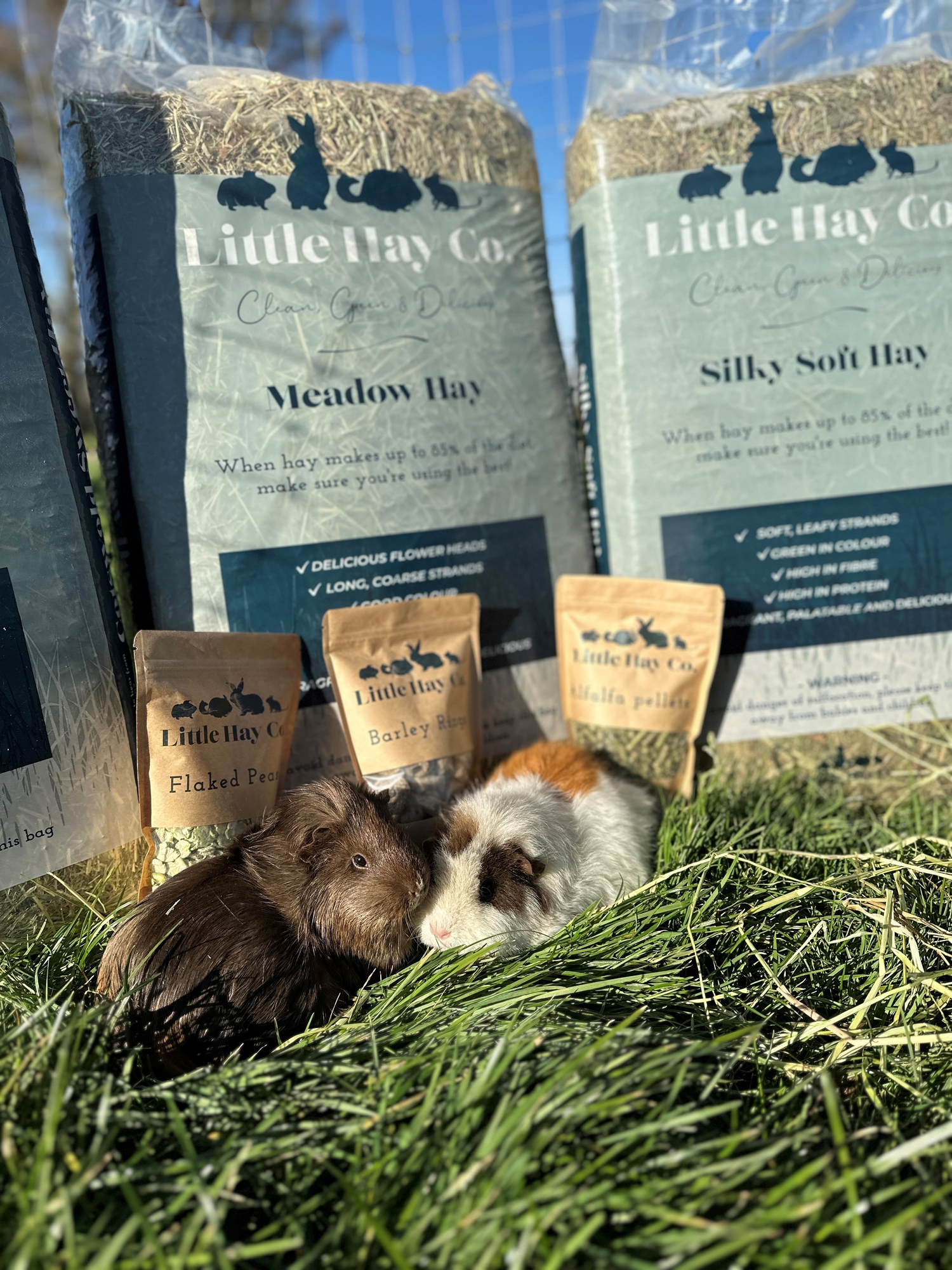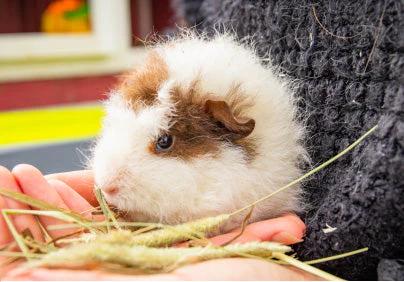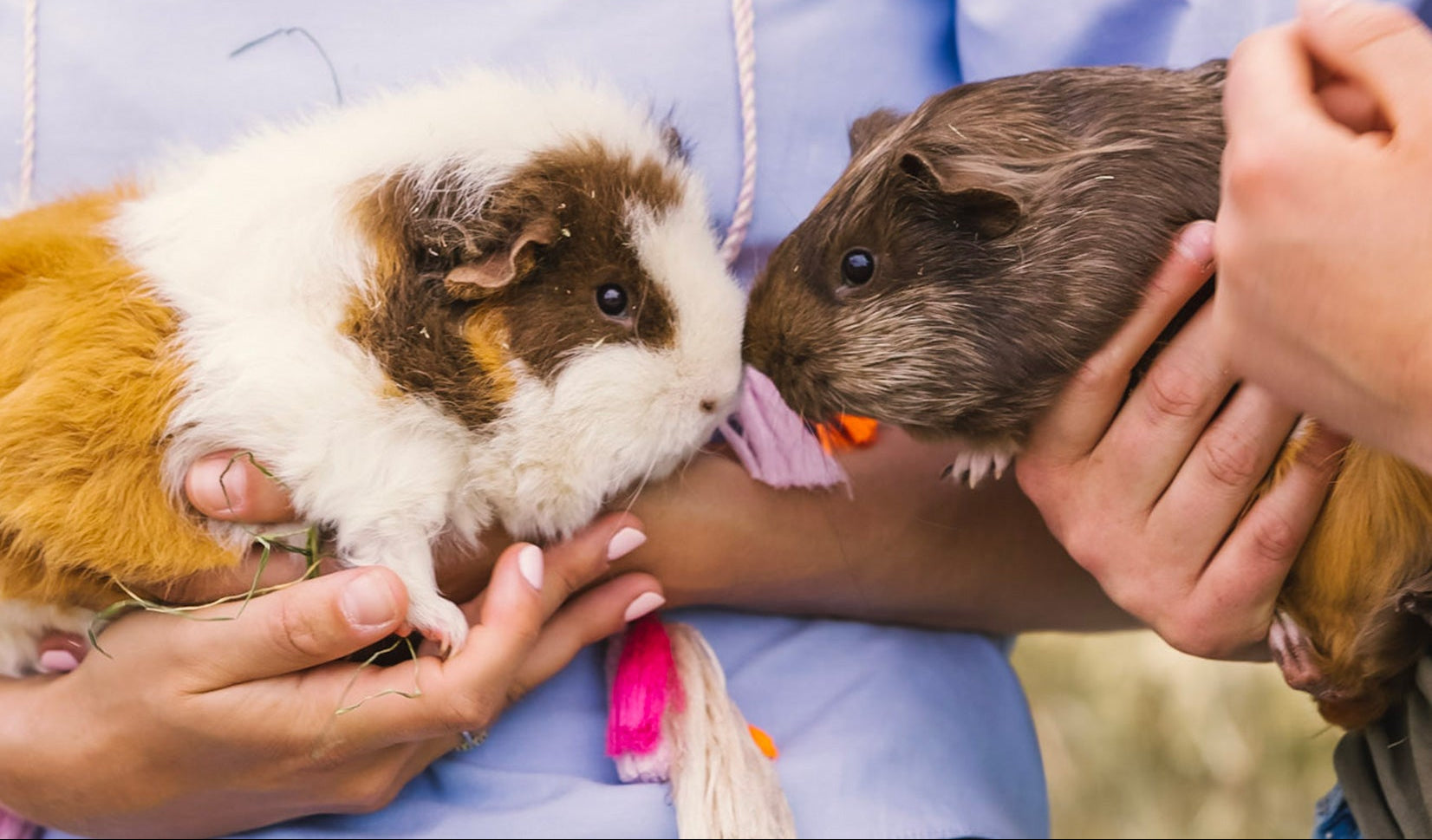When it comes to giving treats to rabbits, it's important to choose options that are safe and healthy for them. Here are some treats that are generally considered safe for rabbits:
Fresh vegetables: Rabbits enjoy a variety of fresh vegetables, such as carrots, broccoli, bell peppers, spinach, kale, and romaine lettuce. Introduce new vegetables gradually and in small quantities to prevent digestive upset.
Leafy greens: Leafy greens like parsley, cilantro, dandelion greens, and mint are also safe and can be given as treats. These should be fed in moderation as too much can cause stomach upset.
Hay-based treats: There are widely available treats that are made primarily from hay, which is an essential part of a rabbit's diet. These treats are usually cut into shapes, cookies or sticks and can provide mental stimulation for rabbits while also satisfying their need to chew. Our Hay based treats are produced in the UK by chewychews.co.uk
Fruit treats: Fruits can be given as occasional treats due to their sugar content. Safe options include small slices of apple, pear, banana, and strawberries. Limit the quantity to prevent weight gain and digestive issues.
Herbs: Some herbs like Parsley, cilantro, oregano, and rosemary can be given as treats in small amounts. They can add variety to a rabbit's diet and provide additional flavors.
There are certain treats that are considered bad or unsafe for rabbits. It's important to avoid giving these to your rabbit to prevent potential health problems. Here are some treats that should be avoided:
Chocolate: Chocolate is toxic to rabbits (and many other animals) due to the presence of theobromine. It can cause serious health issues and even be fatal if ingested.
Foods high in sugar: Rabbits have delicate digestive systems, and sugary treats like sweets, cookies, or sugary cereals can disrupt their gut flora and lead to digestive problems. Excessive sugar intake can also contribute to obesity and dental issues in rabbits.
Caffeine: Similar to chocolate, caffeine is harmful to rabbits. It can negatively affect their cardiovascular and nervous systems. Avoid giving them any caffeinated drinks or foods containing caffeine.
High-fat treats: Foods high in fat, such as nuts, seeds, and oily snacks, should be avoided. Rabbits have difficulty digesting high-fat foods and can develop gastrointestinal issues.
Dairy products: Rabbits are lactose intolerant, so dairy products like milk, cheese, and yogurt should not be given to them. These can cause digestive upset and diarrhea.
Processed foods: Processed foods, including crisps, crackers, and other human snacks, often contain additives, preservatives, and high levels of salt, which are not suitable for rabbits.
Always prioritise a balanced diet for your rabbit, consisting of fresh hay, fresh vegetables, and a limited amount of pellets. Treats should only be given in moderation and in line with a rabbit's dietary needs. Remember to introduce new foods gradually and in small quantities to monitor your rabbit's response. It's also important to avoid giving rabbits treats that are high in sugar, artificial additives, or high in fat, as these can be harmful to their health. Always consult with a veterinarian if you have specific concerns or questions about your rabbit's diet.














